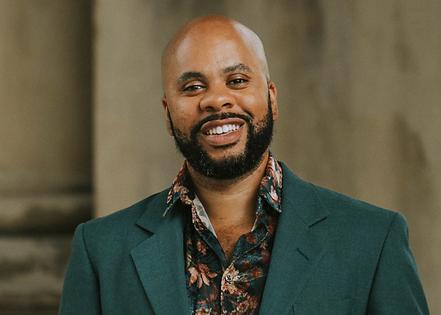Asking Eric: Friend’s complex needs strain friendship
Dear Eric: "Bella" and I met more than 35 years ago as volunteers. We maintained a friendship despite totally different life paths: she had a string of relationships that never went very far; I married, became a stepmom, then had a baby.
She wasn't able to maintain a career due to increasing mental health issues that also affected her physical health. She became a recluse for two years.
I have deep appreciation for the complexities that mental illness brings. I know that love and compassion are what Bella needs and that they are the basis upon which this friendship has existed.
I set aside my needs because I know that she hasn't the capacity for anything beyond her own complex needs. I learned this the hard way years ago when she stood me up for a lunch date at a restaurant after I had just suffered the agonizing loss of a late-term pregnancy. She admitted she decided to attend a social affair instead; it never occurred to her I needed a friend and support.
Do I love her? Of course. But ... I'm tired. I've been doing this my entire life and my tank is empty; I have nothing left to offer this friendship. I feel awful saying this.
Over the last few years, I've avoided getting together because it's emotionally and mentally exhausting, but she keeps asking for us to visit. How do I navigate boundaries with truth for me and compassion for her?
– Want to Be a Friend
Dear Friend: Ask yourself what you need from this friendship, without the asterisk of what Bella can provide. I wonder if, in the past, you pushed down your own needs too many times, in deference to Bella’s needs. That’s going to wear thin quickly because the friendship becomes unbalanced and remains so.
It’s not too late to move this from a service relationship to one that serves both of you. Maybe you need a phone conversation rather than a visit. Maybe you need to talk through some of the things she did in the past and hear her acknowledge that they were hurtful.
You can be compassionate and still advocate for yourself. Part of this advocacy comes with knowing that she may not be able to give you all that you need. But it starts with letting yourself want it and then asking for it.
Dear Eric: Should I tell my sister that her son, "Noah," a recent college grad looking
for a job, comes across as entitled in a job interview? This may be the reason he is still hunting for a job a full year after graduation when his peers have secured positions.
I am aware of this remark because a friend of a friend of mine is a manager of a company where Noah interviewed. Although my contact did not directly interview him, he received feedback from his managers. The two managers who separately interviewed Noah both reported that although he seemed eager for the job and qualified, he came across as entitled and privileged.
My sister is protective of him and is very sensitive that he's been unsuccessful in finding a job after more than a year. When our mother asked about why it has taken so long for Noah to get a job, my sister barked at her and said, "It's a highly competitive market!"
Should I let my sister know of the comments I heard, even though I believe she will become defensive? I understand that the comments are not firsthand. Should I talk to Noah? Or shall I just keep my thoughts to myself and let my nephew experience a bit of real life and rejection on his own?
– Concerned Aunt
Dear Aunt: Talking to Noah directly is best. This way you sidestep your sister’s defensiveness and can have a constructive conversation with Noah that may benefit him more. Ask his permission first – i.e., I have a friend of a friend at X company; are you open to hearing feedback about your interview?” He may say that he’s not interested; if so, respect that.
Before you talk to Noah, however, figure out what information is actionable. Less helpful: “stop being entitled.” More helpful: “based on the feedback that I received, try emphasizing this aspect of your personality more in interviews.” Because this information comes through multiple links in a game of Telephone, telling him what you heard will probably not be as useful to him as advising him how he might avoid giving off similar impressions in the future.
Even if he’s not as defensive as your sister, searching for a job can be a sensitive and grueling process. Hearing feedback about your performance can be even more so. So, root all of your comments in a shared desire for the world to see his promise.
(Send questions to R. Eric Thomas at eric@askingeric.com or P.O. Box 22474, Philadelphia, PA 19110. Follow him on Instagram and sign up for his weekly newsletter at rericthomas.com.)
©2025 Tribune Content Agency, LLC.


















Comments